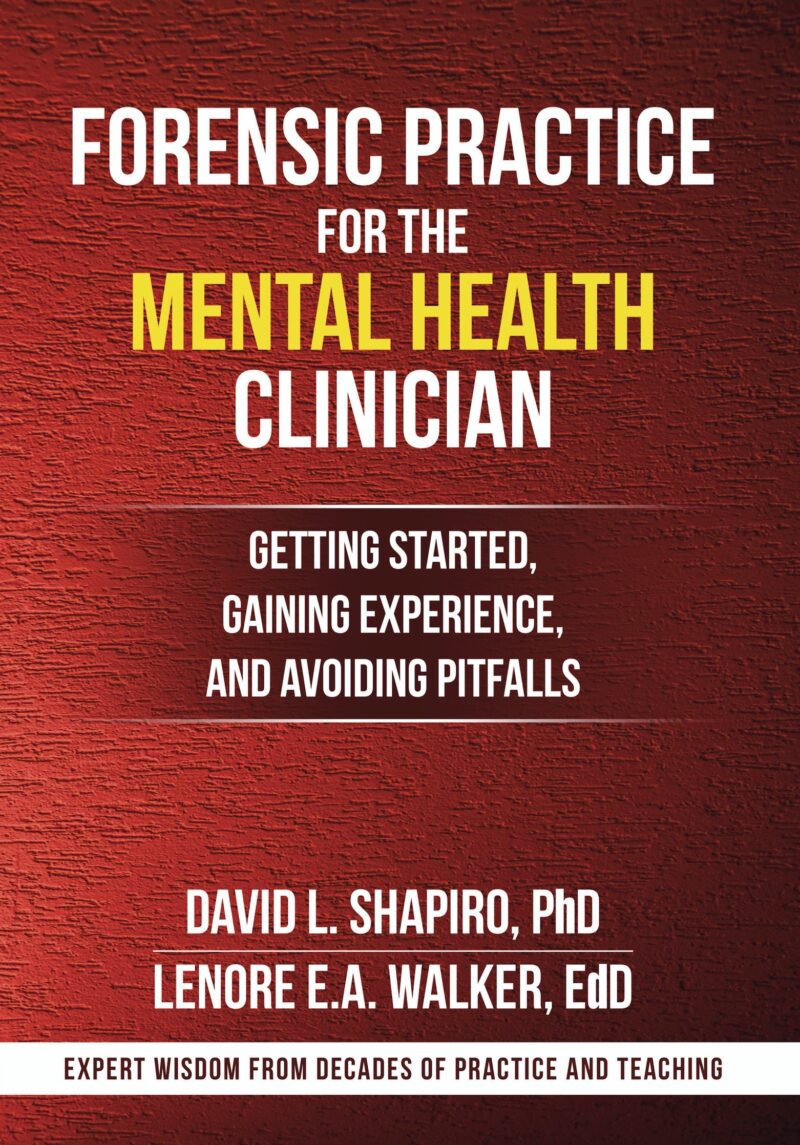Description
Financial Management For Your Mental Health Practice: Key Concepts Made Simple
By Jeff Zimmerman, Ph.D. and Diane Libby, CPA.
Published by TPI Press
Perhaps no issue is more important to the sustained success of a mental health practice than understanding the financial aspects of running a business. Yet this topic receives such little attention in training Without full awareness of where revenues are coming from, and where they are allocated in the practice, how can a small business owner know how they are doing financially? Could you be doing better? Where should you invest more resources? Where could you cut expenses? How can you review financial statements in order to plan for sustained growth in your practice?
One need not be a CPA to develop and maintain a successful practice; but understanding basic accounting concepts is one of the necessary ingredients. In this book Dr. Zimmerman combines his years of experience running a large mental health practice and consulting to mental health practices, with Ms. Libby’s years of experience working as a CPA for mental health practices, to develop a helpful and important primer that is essential reading for anyone wanting a financially successful practice.
Read the introduction here (click arrow to expand)[expand]
Introduction
Get ready to start on a journey. This is a journey you may believe that you just cannot take. Or, it may be one that you have attempted but then given up on. The journey is learning some basic accounting and financial business principles and practices as it relates to the operation of a mental health practice.
No, you don’t have to be good in math or have an MBA as a prerequisite to begin this journey. We (a psychologist who has spent over 30 years in private practice and an accountant who consults with mental health practices) are going to teach you the basics in a manner that is straight to the point and pertinent to running an independent mental health practice. Whether you are in solo practice or have a large inter-disciplinary practice (or are somewhere in between), we have written this book to help you think about your practice as a business and better understand some of the basic accounting and financial principles necessary to be fiscally aware. It is going to be easier than you expect.
Learning these principles can help you: (a) make better business decisions; (b) deal with bank and loan officers, and (c) understand the reports generated by your office software and your accountant. We have purposely kept this book short. It is only seven chapters. Each chapter will discuss a key element related to the journey (a stop along the way) and conclude with how all the points in the chapter can fit together.
We will begin in Chapter 1 focusing on why this all seems so difficult. In Chapter 2 we discuss some basic principles of Accounting and Finance. We will show you in Chapter 3 many key measures related to your practice and show you how you can use them to understand and when necessary shift what is happening in the business of your practice. In Chapter 4 we show you how to use some of these measures and combine them with general, as well as some specific, strategies for managing your practice. Chapter 5 outlines various strategies for compensating employees and how to determine what ranges of compensation are reasonable for your particular practice. Chapter 6 focuses on planning for retirement. Chapter 7 addresses a number of common business decisions that practice owners face and how to line up your mentors and advisors. [/expand]
Table of contents (click arrow to expand)[expand]
Chapter 1: I Never Took an Accounting class
Why is it so difficult?
How it all fits together
Chapter 2: Accounting and Finances
Method of accounting
General ledger/chart of accounts
Profit and loss statement
Budgeting
Accounts payable
Accounts receivable
Debts: Loans and lines of credit
Setting up your practice management system and your accounting system
How it all fits together
Chapter 3: Practice Metrics
Income and expenses
Billings and collections
Accounts receivable
Case origination
How it all fits together
Chapter 4: Principles of Practice Management
Weekly oversight meetings
Monthly oversight meetings
Quarterly oversight meetings
Additional strategies for internal controls
Other strategies
How it all fits together
Chapter 5: Compensation
Employee compensation
Owner’s compensation
How it all fits together
Chapter 6: Saving for Retirement
Retirement plans with no employees
Retirement plans for practices with employees
How it all fits together
Chapter 7: Making it Work
General principles
Common business decisions
Lining up your mentors and advisors
How it all fits together [/expand]
About the authors
Are you considering this book for a class you are teaching?
Request a review copy. Download the request form and email it as an attachment to jeffzimmermanphdATthepracticeinstitute.com.






